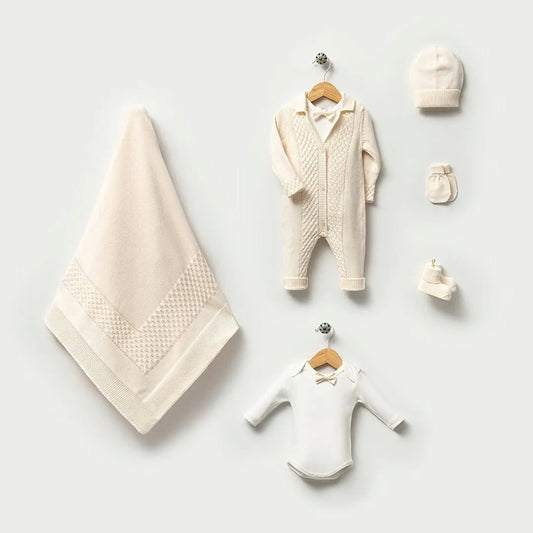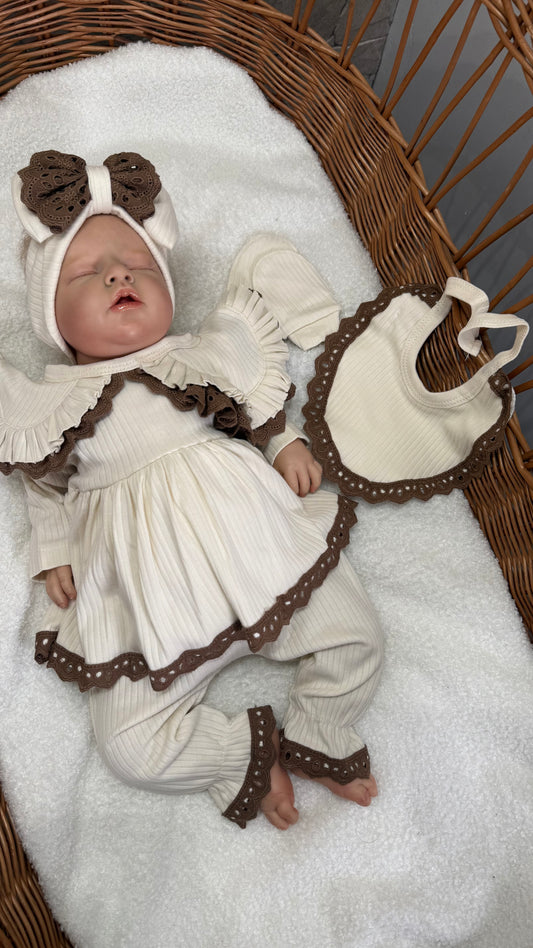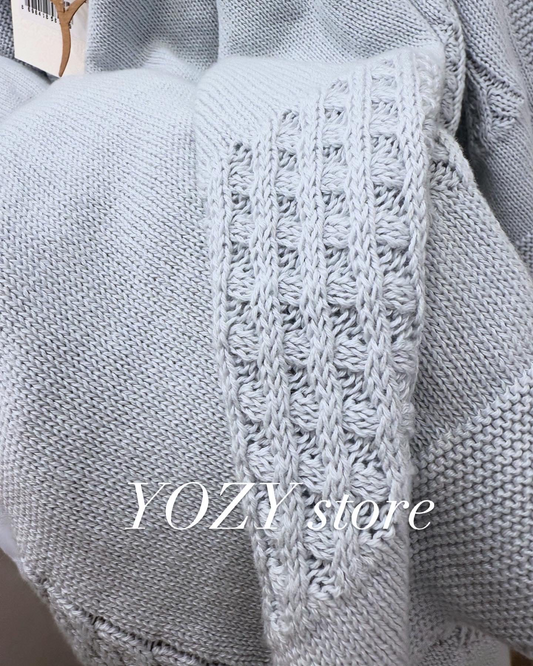-
Discover our collection of baby clothes combining style, comfort and safety !
🤍 Baby Bestseller
-
[Bestseller] Newborn girl set – GOTS certified organic cotton – Softness and comfort 0-3 months
Regular price 76,90€Regular priceUnit price / per -
Personalized wooden & silicone pacifier clip – Bear clip
Regular price 24,90€Regular priceUnit price / per -
[Premium Range] Newborn baby girl set size (0-3 months) pink
Regular price 78,90€Regular priceUnit price / per -
[Premium Range] Baby Boy Cream Birth Set 0-3 Months – 6 Piece Knit Set 100% Organic Cotton GOTS Certified
Regular price 77,90€Regular priceUnit price / per -
[Premium Range] Newborn kit for girls (0-3 months) organic cotton
Regular price 29,90€Regular priceUnit price / per -
[Premium Range] Baby boy birth set box sky blue – 6 pieces, organic, soft and unforgettable (0-3 months)
Regular price 77,90€Regular priceUnit price / per
🤍 Baby Collections
Behind every package, there is a story 💛 A birth, a first name, a smile that crosses borders 🌍 Here, each order is prepared with care, so that the magic reaches you ✨
-

Payment platform
100% secure -

Free delivery for purchases over €180
-

Delivery within 2 to 5 days
-

Premium Quality and Service
-

Got a question? Ask us in the chat or on social media
-

Follow us on social media to never miss a promo code!
WHEN TO START BUYING BABY CLOTHES?
When should we buy clothes for the baby's arrival? This is a common question for many expectant parents. Should we buy everything in advance, even at the risk of having too much, or should we wait until the baby arrives to avoid making mistakes when choosing clothes? You have several options, and none of them are unfavorable. Buying and preparing your baby's wardrobe should be done at your own pace, primarily to give you peace of mind when your little one arrives. In this guide, our goal is to guide you toward the most appropriate solution for purchasing clothes for your baby.
In which quarter/period can we start buying baby clothes?Expecting a baby can quickly lead to panic when it comes to shopping. What should we buy before their arrival? When should we do it? It is generally recommended to wait until the second trimester to be sure and start preparing for the baby. The ideal time would be between the fifth and seventh month, as it is neither too early nor too late. On the one hand, we know that the baby is imminent, and on the other, we realize that we still have several months to prepare for their arrival. This provides an opportunity to plan, think, and obtain information on various items. This is an opportune time, because if we start equipping ourselves later, we risk not Be prepared if your baby arrives earlier than expected. So don't wait until the eighth month to start getting ready! |
Buy baby clothes as you go or buy them in advance?
Every parent has their own unique circumstances and will choose the organization that seems most appropriate to them. Anticipation brings a certain peace of mind; you feel ready and willing to welcome your baby. This brings greater peace of mind, especially for parents welcoming their first child. Opting for a gradual purchase is also a wise solution if you're worried about accumulating too many things for your baby and prefer to make decisions after the baby is born.
Buy baby clothes for the maternity ward and then gradually.
Even if you don't want to buy baby clothes in advance, it is necessary to plan a minimum for maternity and for the baby's basic needs.
For the maternity ward, you'll need to pack a maternity bag containing everything your baby needs. This equipment will also be useful for your baby's needs later on. We recommend packing at least five spare sets!
For your baby's sleep, you can anticipate:
- Several pajamas
- A sleeping bag
- Several Bodys
Don't forget the bib for mealtimes, it will be very beneficial!
Delaying clothing purchases helps avoid sizing mistakes. Your baby will grow quickly, and sometimes you'll need the next size up almost immediately. Waiting allows you to tailor your purchases to your baby's development and gradually adjust to their growth. If you've kept your baby's gender a secret until after the baby's arrival, you can opt for unisex items for your initial needs.
Buy baby clothes in advance to plan ahead
For those who plan ahead, making advance purchases helps you be better prepared and reduces stress. If you're worried about not being prepared enough or running out, it's best to plan your baby purchases in advance. This gives you the opportunity to carefully consider what you want to acquire before the baby arrives and allows time to invest in expensive equipment (some baby accessories can be quite expensive). Planning ahead in this way gives you time to think things through.
Once the baby arrives, you may be worried about being exhausted during the first few weeks and not having time to do your shopping. In this situation, it's best to plan ahead. However, you should be careful when planning for very small sizes, especially newborn sizes (which usually only fit babies for a few weeks), given their rapid growth. Gifts from friends or family could also provide for your needs during the first few weeks.
Above all, it's important to treat yourself by choosing items you like. Trust your intuition when buying clothes!
Is it necessary to buy all the baby clothes?Generally, it's not necessary to buy all of your baby's clothes before their birth. Gifts from loved ones will enrich your wardrobe. You can always offer your loved ones a baby registry so they can identify what you need or are missing. Create a detailed baby registry to get clothes and accessories that you like. This will prevent excessive accumulation of items that don't suit you and that your baby won't wear. |
Can you buy baby clothes before knowing the gender?
Don't know your baby's gender yet, or would you rather wait until the birth to find out? No worries! However, you can still start buying clothes. To avoid making mistakes, you can choose unisex outfits. It's even possible to continue buying unisex clothing after the birth.
Whether you decide to buy clothes from the first month or wait until the baby is born, there is no ideal or inappropriate time to buy clothes for your baby. While some will fall in love from the start, others, more superstitious, will prefer to wait until the birth to consider the future. In any situation, your child will surely not be left out! So relax, have fun, and enjoy yourself!
WHAT SIZE OF CLOTHING SHOULD I CHOOSE FOR MY BABY AT BIRTH?
The size designed for a baby is not necessarily identical from one brand to another and does not always reflect their age.
Finding the right size of clothing for your baby or child can sometimes become an obstacle course!
Also, be careful when buying newborn-sized clothes, as it can be tempting to stock up on a large quantity. However, this size is only suitable for babies weighing less than 3.3 kg and measuring less than 50 cm. As you've probably guessed, this size won't fit your baby for very long and is sometimes already too small for them from birth!
At YOZY store, we bring you a solution: ingeniously designed with an eco-responsible approach, the One Size design (0-3 months) allows you to use it from birth until your baby is 3 months old.
So no more worrying about whether to buy a newborn size, a 1 month or a 3 month size, or whether it's going to be a big baby or not!
WHAT CLOTHES SHOULD I BUY FOR BIRTH?
The arrival of a baby raises the question of how to choose the right clothes. Whether it's for pregnancy or for dressing the newborn when they return home, it can quickly become overwhelming. This guide contains all our advice to help you prepare for your baby's arrival, so you're perfectly equipped for the maternity ward and for your home.
Comfortable and practical clothes for the birth of your babyAt birth, plan for comfortable and comfortable clothes for the hospital and for the weeks following delivery. It's best to dress your baby in bodysuits, jumpsuits, and pajamas for the first few days. For practicality, opt for pajamas and bodysuits that are easy to put on. Don't forget to pack several small blankets for the maternity ward and for home. This will give your baby a sense of security and keep them warm. It's crucial to pack clothing to protect your child from the cold and temperature fluctuations.
Don't forget the mother! It's also important to plan for practical and comfortable clothes to wear after birth so she feels comfortable.
|
What clothes should you choose for your maternity suitcase and baby's birth kit?
For those first moments with your baby, it's essential to pack a maternity bag. However, once you're back home, you'll also need to prepare by gathering the essentials to welcome your baby in the best possible conditions.
What to pack in your baby's maternity suitcase:
- 6 to 7 bodysuits
- 6 to 7 combinations (prefer one size (0-3 months) or be sure to mix sizes: take the newborn size and the 1 month size, or even 3 months)
- 2/3 cups
- Mittens to prevent him from scratching himself and to warm his hands.
- 3 small blankets
- 2 pairs of socks
- 3/4 bibs
Avoid spending too much on newborn size (0 months), as your baby will grow quickly and this size is often only suitable for the first few days of life. Plan to have baby clothes for 1 to 3 months in your maternity kit, as your baby may outgrow newborn size (0 months).
Don't forget to cover your baby well at birth! The baby moves from the mother's womb, where it is exposed to a temperature of around 37 degrees, to a cooler environment of around 20 to 25 degrees. Infants are not able to regulate their body temperature independently, hence the importance of covering them well with a hat, a blanket, and warm materials.
HOW TO WASH BABY CLOTHES?
Cleaning baby clothes requires certain precautions: what is the ideal temperature? Which detergent should you choose? This guide aims to clarify all your questions about washing your little ones' clothes. The laundry cycle will intensify with the arrival of a baby, so it's essential that your questions are clarified.
|
What detergent should I use for baby clothes? A baby's skin is completely different from ours. It is more reactive and sensitive, which can increase the risk of allergies. It is therefore advisable to pay particular attention to the detergents used for the clothes of very young children. There are a lot of laundry detergents on the market labeled as "baby-friendly," but don't be fooled by the marketing; these products are often comparable to traditional laundry detergents. To help you choose the right detergent for your baby, we'll share a powerful tip! You should select a hypoallergenic detergent. This means that tests have been conducted to prevent any allergic skin reactions. The detergent label should indicate that it is hypoallergenic. Choose detergents containing natural cleaning agents, without artificial fragrances or preservatives. If you usually use a capful of fabric softener in your washing machine before every wash, you'll need to stop using it with the arrival of your baby. Fabric softeners contain chemicals that could harm your baby's skin. It's recommended to substitute a small amount of white vinegar for your fabric softener. The vinegar will help soften your laundry, just like your fabric softener, and your laundry will not smell like vinegar. |
Our recipe for quick and eco-friendly homemade laundry detergent!
- Mix 1L of boiling water with 30g of Marseille soap flakes
- Let stand for one hour
- Add a good tablespoon of baking soda and mix again.
- Let the mixture cool then pour it into a bottle, keeping the cap open for 24 hours.
What are the washing temperatures for baby clothes?To choose the right washing temperature for baby clothes, it's essential to understand the composition and care labels, as each garment has its own specific characteristics. But don't worry, we've already analyzed these labels for you. Temperature differences can frequently vary depending on the materials (cotton, synthetic, wool, etc.) or the decorations on the garment ( buttons, prints, embroidery, etc.). For outfits made of cotton or containing more than 50% cotton (see composition label), washing at 30° or 40° inside out is often recommended, in order to preserve the patterns, for example. Cotton is a durable material, capable of withstanding a 60° wash, however, the fabric could shrink and especially lose its shape. Tumble drying is generally not recommended for both clothing and the environment, although it can sometimes save time when washing baby clothes. It can distort clothes and can also cause them to shrink, as the dryer reaches a minimum temperature of 60°C, and fabrics do not tolerate this heat well. |
What are the recommended washing machine programs for washing baby clothes?
Once you've carefully sorted your baby's clothes, the next step is to select the appropriate wash cycle on your washing machine. Select the temperature according to the washing instructions on the label.
We recommend using long cycles on your appliance, which promotes better pre-washing and extended rinsing.
If you don't have time for an extended cycle, sort the baby's clothes and start a new rinse cycle.
The purpose of rinsing and pre-washing is to remove as much soap residue as possible and kill bacteria.
Cold wash program for newborn clothes
A washing machine's cold wash cycle is used to clean delicate and fragile clothing. For delicate garments, it is important to read the care instructions carefully. Delicate fabrics are often made of wool or silk.
Some tips for hand washing clothes:
It's perfectly fine to hand wash baby clothes. The key is to avoid using water that's too hot and to rinse several times after washing to remove all traces of soap.
You can add a little white vinegar to your laundry detergent to make your clothes softer, or reduce the amount of detergent by adding a little water to prevent marks from forming on your clothes.
Tips for removing stains from baby clothes?
|
When to start washing baby clothes before their arrival?
It is recommended to wash all clothes, whether new or used, before wearing them, and this applies to the whole family.
It is advisable to wash new or second-hand baby clothes to remove any chemical residue or bacteria from the fabrics, ensuring optimal hygiene for their delicate skin. It is common for several people to handle or try on the clothes before they end up in your wardrobe.
If you're wondering " when to wash your baby's clothes?" we recommend washing them as you buy them.
Our advice is to prepare baby detergents just before packing your maternity suitcase and to ensure that bed linen is washed before the baby is born.



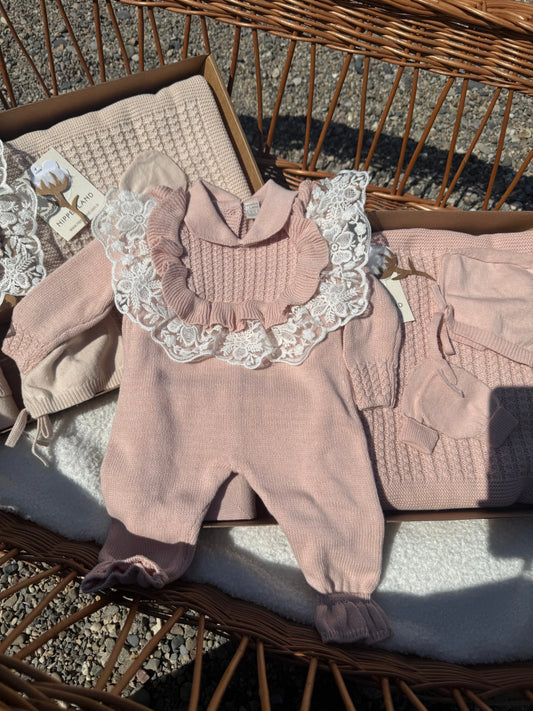
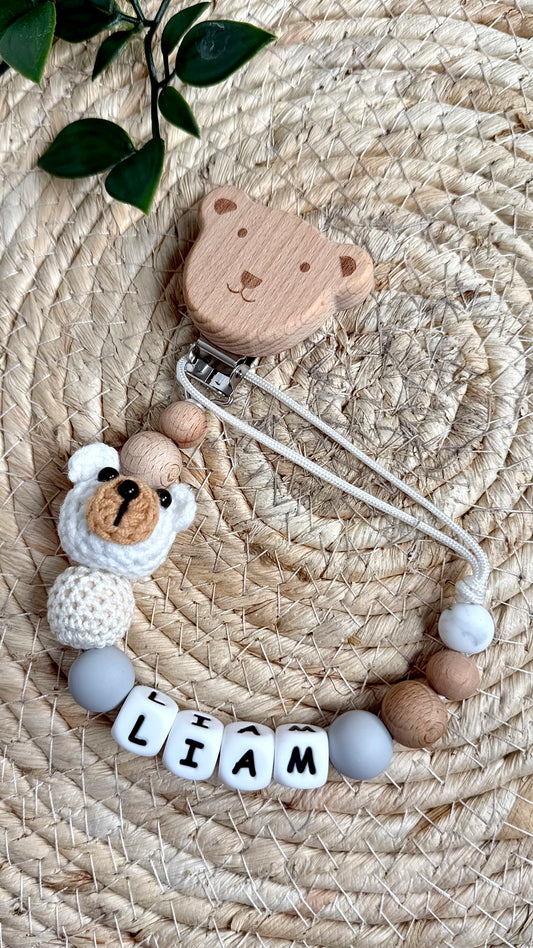
![[Premium Range] Newborn baby girl set size (0-3 months) pink](http://yozystore.com/cdn/shop/files/IMG-0358.heic?v=1738420656&width=533)
![[Premium Range] Newborn baby girl set size (0-3 months) pink](http://yozystore.com/cdn/shop/files/IMG-0323.jpg?v=1738420654&width=533)

